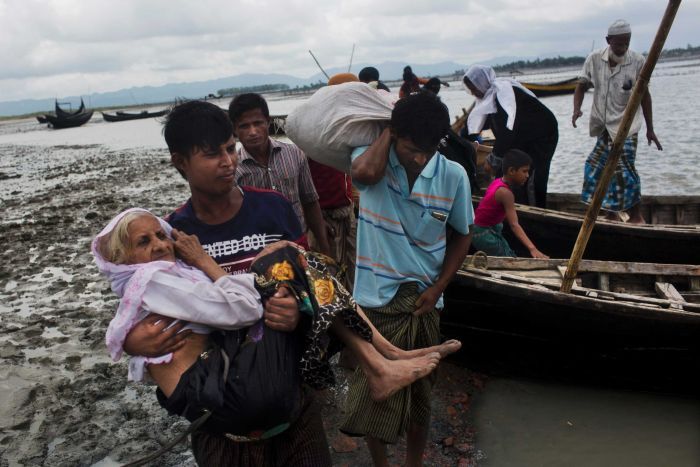India Joins Myanmar Attack on Rohingyas, Says They Are Threat to National Security
THE CITIZEN BUREAU

NEW DELHI: The Government of India has finally spelt out its stand on the Rohingyas undergoing barbaric violence at the hands of the military junta in Myanmar. In an affidavit filed in the Supreme Court, the government has stood by its decision to deport the hapless community as an “executive policy decision” stating that this does not fall under the the jurisdiction of the courts.
Taking a position supportive of the Myanmar army and government, the Indian government claimed that the Rohingyas are a "very serious and potential threat to national security". The government also claimed that the Rohingyas, under severe attack and fleeing for their lives in a humanitarian crisis that has shocked the world, are indulging in anti-national activities, including money laundering.
Union Home Minister Rajnath Singh had said a few days ago that the government position would be made through the affidavit. It comes in direct contradiction to the United Nations that has described the violence against the Rohingyas and the subsequent influx as a major humanitarian crisis urging the neighbouring countries to accept the refugees. Prime Minister Narendra Modi during a recent visit to Myanmar where he met with the Nobel Laureate Aung San Suu Kyi had given the first indication of supporting her and the miltiary position against the Rohingyas. This at a time when there have been petitions and statements from across the world urging Suu Kyi to break her silence and come out in support of the hapless community that has become the target of unmitigated violence.
The larger argument in the affidavit by the government raises issues that the government and the BJP have raised earlier as well against Bangladeshi’s with the new position being that Hindu refugees are acceptable but Muslims not. The affidavit stresses on government concerns about demographic changes, and the threat to national security posed by the Rohingyas that it claims to have links with the Islamic State.
The affidavit thus states:
- That there is already an influx of refugees from neighbouring countries, that the demographic profile of border states has changed,and this threatens the fundamental rights of Indian citizens;
- That 40,000 Rohingyas have entered India illegally;
- That their stay here is illegal and the government has found it to pose a serious national security threat;
- That this influx started in 2012 and the central government has information linking the illegal Rohingya immigrants with Pakistan based terror organisations, and similar groups operating in other countries;
- That there is an organised influx of such persons from Myanmar into India, through Benapole-Haridaspur (West Bengal), Hilli (West Bengal) and Sonamora (Tripura), Kolkata and Guwahati. And this situation is threatening India’s national security;
- Some Rohingyas according to government information are laundering money, procuring fake Indian identity cards and have connections with Islamic State and other such sinister groups working to create communal and sectarian violence in the country;
- There is potential for violence against the Budhists by radical Rohingyas;
- Rohingyas with a militant background are very active, according to the government, in Jammu, Delhi, Hyderabad and Mewat where they pose a major threat to national security.


